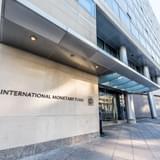MIDDLE EAST & TURKEY
Dubai has reportedly agreed a US$3bn loan with commercial lenders to finance the expansion of the emirate's Dubai World Central airport and a number of other facilities associated with Expo2020, according to a report from Bloomberg. The loan includes a US$2bn conventional tranche and a AED3.67bn (US$1bn) Islamic facility. The loans will pay EIBOR+200bp.
According to Alpen Capital, the GCC’s hospitality sector is expected to grow at a 7.6% CAGR from an estimated US$25.4bn in 2015 to US$36.7bn in 2020, an expansion driven largely by attracting travellers and business people from new source markets including Saudi Arabia, China and India.
Although liquidity conditions in Saudi Arabia have continued to improve in recent months, the 3-month Saudi Arabia Interbank Borrowing Rate (SAIBOR) spiked for two consecutive months to reach 0.9689% in January 2017, its highest level since June 2016. The rate is still down from its 5-year peak of 1.426% seen in October 2015.
Saudi Aramco, the world’s largest oil producer, picked HSBC Holdings Plc’s local unit, Riyad Capital, NCB Capital Co. and Alinma Investment to help with the sale of riyal-denominated Islamic bonds, Bloomberg reported. The sukuk is part of Aramco’s plans to raise as much as US$10bn in bonds this year ahead of its initial public offering, which could take place as early as this year.
Egypt's Banque Misr said it will slightly reduce the number of loans to extend in 2017, it said in a statement. The bank said it would consider participating with syndicated loans worth in excess of EGP54.7bn (down from EGP55.1bn) and concentrated in several strategic sectors including the real estate investment sector, transport, electricity, and ports. The bank will extend EGP13.6bn of its own balance sheet, down from EGP17.1bn in 2016.
Turkey has transferred government stakes worth billions of dollars in Turkish Airlines, Turk Telekom, Ziraat Bank, the Borsa Istanbul, and state-owned pipeline operator Botas among others, to its sovereign wealth fund. The government has insisted the management and capital structure of the affected companies will not change, and plans to secure investment into a number of megaprojects in the country by using its stakes in the companies as collateral to secure funding.
Turkey’s CPI increased to 9.22% year on year in January, substantially higher than expected, and up from 8.5% in December 2016. The country's Central Bank said rising fuel and food prices led the increases.
AFRICA
First City Monument Bank Plc became Nigeria's first bank to place bonds in 2017, issuing NGN5.1bn (slightly down from a planned NGN7.5bn) in 7-year bonds in a deal arranged by Standard Chartered Bank, Chapel Hill Denham and FCMB Capital.
Rwanda will sell a 5-year Treasury bond worth CFA10bn (US$12mn) this month to fund infrastructure projects, the country's Central Bank said this week. The coupon for the bond will be determined at an auction taking place towards the end of February, the Bank said on its website.
AMERICAS
Brazil's lava jato scandal has slowly made its way to Peru, where the country's authorities are seeking the arrest of former president Alejandro Toledo. The authorities allege they have evidence Toledo is linked to US$20mn in bribes that the Brazilian conglomerate Odebrecht disbursed to win contracts in the country. Odebrecht was one of the lead concessionaires on the Gasoducto Sur Peruano (GSP), a partially completed natural gas pipeline in the south of the country, before its ability to raise money for the project was derailed last year.
Brazilian President Michel Temer promoted his infrastructure investment secretary and close personal advisor Wellington Moreira Franco to a ministry-level position, a move some critics believe were designed to shield Moreira Franco from potential prosecution. Moreira Franco has previously been implicated in a major graft probe.
Brazilian pulp and paper firm Klabin is said to be in the process of preparing to issue debentures in the local market. The company is planning to issue up to BRL938mn (approx US$300mn) in 3 and 5-year debentures.
Brazil's CCR AutoBAn paused its 7th debenture issuance and cancelled investor meetings last week, according to a note from the Securities and Exchange Commission of Brazil. The company was planning to issue BRL800mn this month, but it is possible lower-than-anticipate demand forced the road operator into delaying the sale.
ASIA
JPMorgan Chase & Co has secured a highly-coveted license to underwrite corporate bonds in China's interbank bond market, becoming the first US-based bank to do so. The license allows JP Morgan to underwrite bonds issued by non-financial entities, including commercial papers, medium-term notes and other instruments approved by regulators. The move comes months after Chinese regulators approved new measures aimed at easing access for foreign participants in the market. China has the world's third largest bond market, valued at roughly CNY43.7tn (US$6.37tn) outstanding at the end of 2016, with the interbank bond market accounting for about 90% of that figure.
The Central Bank of India is said to be considering raising Basel III-compliant non-convertible redeemable unsecured Tier 2 bonds up to issue size of INR5bn (approx. US$74mn). The Central Bank will consider the issuance when it meets on Thursday this week.
India's government is seeking to ease foreign investment limits as it looks to generate new revenue and stimulate the private sector following the release of the latest budget, which revealed record capital shortfalls.
Indian government-owned lender IDBI Bank Ltd said it plans to reduce its 1-year Marginal Cost of Funds Based Lending Rate (MCLR) to 8.8% in a bid to expand its lending. The move comes just one month after the lender reduced its MCLR across a range of tenors by between 30bp and 60bp.
RUSSIA, CIS & EUROPE
Russia's Central Bank has maintained its key rate at 10.0%, in line with market expectations, as the CB waits for fresh economic data to justify any moves. CPI did rise 0.6% in January, while the rouble, boosted by rising oil prices, appreciated by nearly 1% against the US dollar in early morning trading on Monday. The CB also signalled it would buy up to US$100bn in foreign exchange markets starting February 7 as it looks to boost its reserves.
Russia's Bank Zenit has announced it will rise RUB14bn from a new issue of shares, sold at RUB1 per share. The move comes just one week after Fitch upgraded the bank's rating to 'BB' from 'BB-'.
Vnesheconombank (VEB) plans to write-off problem loans to a special fund via the state’s guaranty. Russia’s government issued RUB548bn (US$9bn) of state guarantees in favour of the Special States Fund to enable VEB to unload bad loans relating to metals producers in eastern Ukraine. It plans to write off up to RUB700bn in bad loans this year.
TMK might tap the Eurobond market in 2017 amid further attempts to deleverage, the company’s Deputy CEO Vladimir Shmatovich said last week in a call with Interfax. Loans worth US$237mn were refinanced in November 201, and in the second quarter of 2017 the company plans to refinance a US$400mn loan with existing credit lines. The remaining part of its short-term debt needs may be refinanced via undrawn credit lines in the amount of US$849.3mn (excluding US$637mn reserved) and US$200mn of cash as of the third quarter 2016, according to ING analysts.
The National Bank of Kazakhstan (NBK) is going to release a Programme of Support for the largest banks in Kazakhstan, NBK Chairman Daniyar Akishev said at the end of last week. He listed a number of measures aimed at supporting the country' s banking sector, including (a) increased liability of auditors and professional valuation consultants who hide information about a bank's deteriorating balance sheet; (2) increased NBK regulation power regarding mandatory restructuring of banks’ capital; and (3) ease M&A procedures. The NBK also plans to conduct an independent audit of banking assets quality in 2017.
Croatia's Central Bank governor Boris Vujčić is being investigated over allegations he repeatedly attended economic conferences sponsored by the owner of Croatia’s biggest commercial bank Zagrebačka Banka, which is majority owned by UniCredit, and had his expenses paid for by the bank. It is unclear what the consequences would be if he were found to be in violation of conflict of interest rules.








